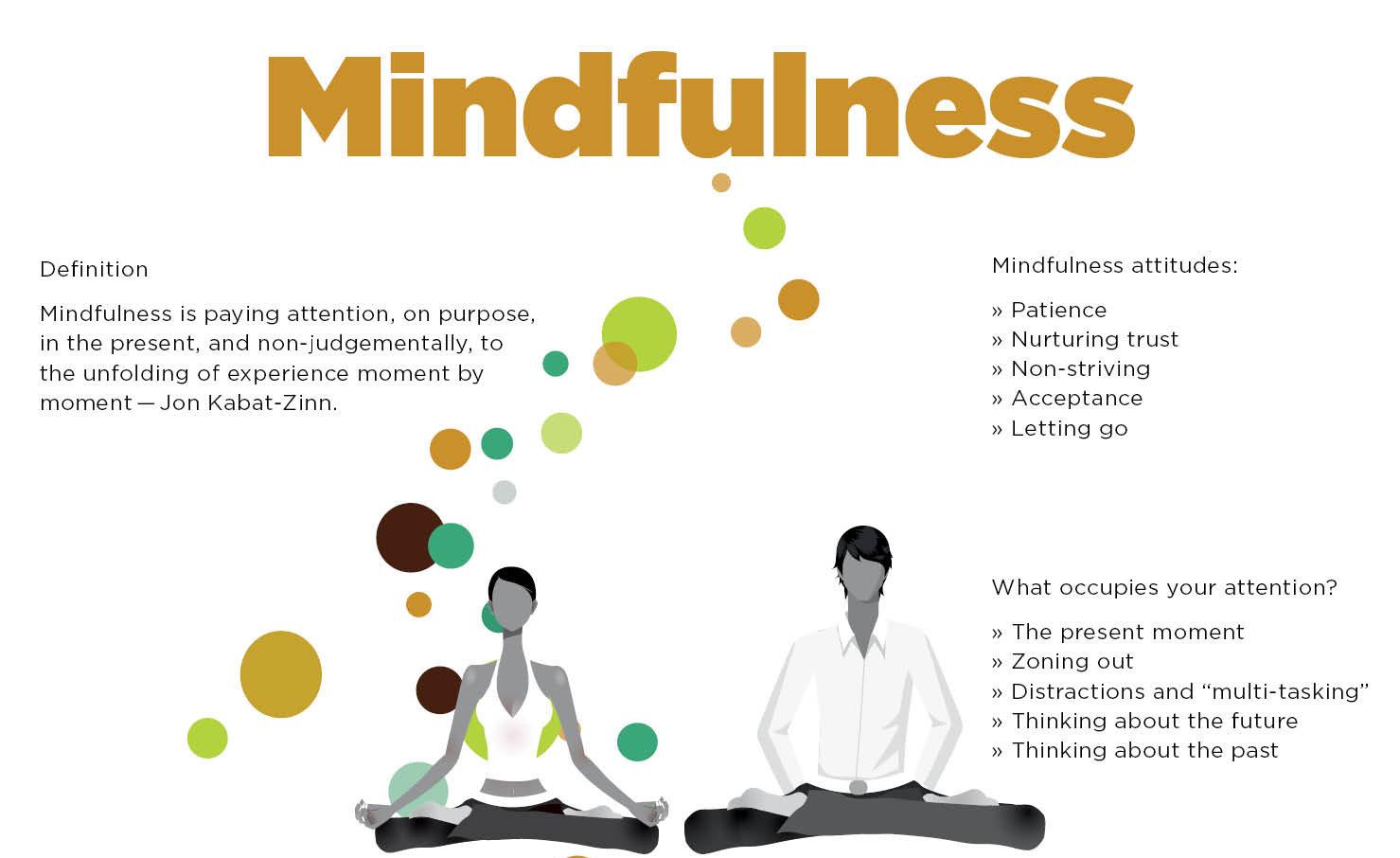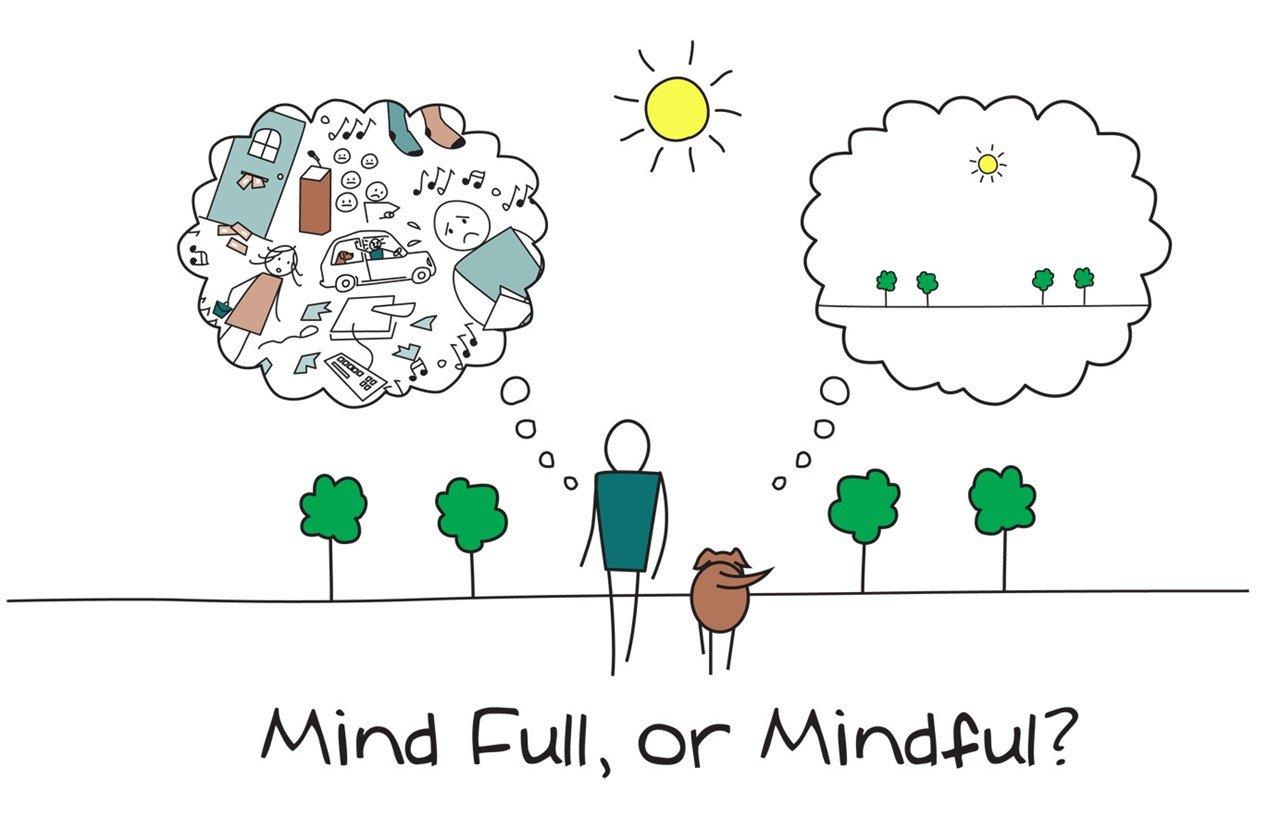In a world that often feels like it’s moving at breakneck speed, the quest for wellness has never been more crucial. Daily stressors—from work pressures to personal responsibilities—can cloud our minds and leave us feeling overwhelmed. Amidst this chaos, mindfulness emerges as a beacon of hope, offering profound benefits that extend far beyond mere relaxation. This article delves into the transformative power of mindfulness, exploring how this ancient practice can unlock a deeper sense of well-being, enhance emotional resilience, and foster a more fulfilling life. Whether you’re a seasoned practitioner or a curious newcomer, join us as we uncover the science, techniques, and advantages of embracing mindfulness in our everyday lives. It’s time to reclaim your mental landscape and cultivate a sanctuary of peace amid the storm.
Table of Contents
- Exploring the Core Principles of Mindfulness in Daily Life
- The Impact of Mindfulness on Mental Health and Emotional Well-Being
- Practical Techniques for Integrating Mindfulness into Your Routine
- Long-Term Benefits of Mindfulness for Personal and Professional Growth
- To Wrap It Up
Exploring the Core Principles of Mindfulness in Daily Life

At the heart of mindfulness lies the practice of being fully present in the moment, a principle that can transform even the most mundane activities into profound experiences. This awareness encourages individuals to observe their thoughts and feelings without judgment, fostering a deeper understanding of themselves and their surroundings. In daily life, this can be seamlessly integrated into various activities, such as eating, walking, or engaging in conversations. Key aspects include:
- Awareness: Paying attention to the sensory details of your experience.
- Non-judgment: Accepting thoughts and feelings as they are, without labeling them as good or bad.
- Acceptance: Acknowledging the present moment and allowing it to unfold without resistance.
This mindset can lead to a multitude of benefits, enhancing emotional resilience and reducing stress levels. Simple techniques, such as mindful breathing or body scans, can anchor us when life feels overwhelming. To illustrate the impact of mindfulness, consider the following table that summarizes the key benefits experienced by individuals who regularly practice mindfulness:
| Benefit | Description |
|---|---|
| Improved Focus | Increased ability to concentrate on tasks without distraction. |
| Emotional Regulation | Greater control over emotional responses during challenging situations. |
| Enhanced Well-being | Greater overall life satisfaction and feelings of contentment. |
The Impact of Mindfulness on Mental Health and Emotional Well-Being

Mental health and emotional well-being are crucial components of our overall quality of life, and mindfulness has emerged as a transformative practice in nurturing these aspects. Through the cultivation of present-moment awareness, individuals can significantly reduce stress and anxiety levels. The brain’s neuroplasticity allows us to adapt our thought patterns, fostering resilience against negative emotions. Engaging in mindfulness practices, such as meditation or focused breathing, activates the parasympathetic nervous system, which in turn promotes relaxation and clarity. The benefits of mindfulness can be seen in various domains:
- Reduction of Symptoms: Many studies indicate decreased symptoms of anxiety and depression.
- Enhanced Emotional Regulation: Mindfulness encourages healthier responses to challenging feelings.
- Improved Focus and Attention: Regular practitioners often report greater concentration and cognitive flexibility.
The impact of mindfulness extends beyond individual benefits; it positively influences relationships, workplace dynamics, and community interactions. As individuals become more aware of their thoughts and emotions, they often experience a ripple effect that fosters compassion and empathy toward others. Engaging with the world from a mindful perspective can help cultivate a sense of connectedness and purpose. Below is a simple table summarizing key insights into how mindfulness shapes our mental health:
| Mindfulness Benefits | Description |
|---|---|
| Stress Relief | Reduces cortisol levels and promotes relaxation. |
| Improved Self-Awareness | Enhances understanding of thoughts and emotions. |
| Increased Resilience | Develops coping strategies for adverse situations. |
Practical Techniques for Integrating Mindfulness into Your Routine
Incorporating mindfulness into your daily life doesn’t have to be an overwhelming endeavor. Start by designating specific moments within your day to pause and breathe. Consider these practical techniques:
- Mindful Mornings: Upon waking, take five minutes to sit quietly and focus on your breath. Notice the sensations of your body waking up, and set an intention for the day.
- Check-in Breaks: Set a timer for a few moments every hour to check in with yourself. Ask how you’re feeling emotionally and physically, redirecting your focus to the present moment.
- Gratitude Journaling: Before bed, jot down three things you’re grateful for. This simple act promotes positive thinking and reinforces mindfulness.
Another effective strategy is to intertwine mindfulness with your existing habits. You can practice mindfulness while performing daily routines by following these suggestions:
- Mindful Eating: During meals, take a moment to appreciate the flavors, textures, and aromas of your food. This not only enhances your eating experience but promotes better digestion.
- Walking Meditations: Transform your daily walks into a meditative practice. Focus on the sensation of your feet touching the ground and the rhythm of your breath.
- Tech Breaks: Instead of scrolling through your phone during breaks, take a moment to observe your surroundings. Identify colors, sounds, and the feeling of the ground beneath you.
Long-Term Benefits of Mindfulness for Personal and Professional Growth
Incorporating mindfulness into daily routines can yield transformative results, enhancing both personal and professional life. Practicing mindfulness regularly helps cultivate a greater sense of self-awareness, enabling individuals to recognize their emotional responses and thought patterns. This, in turn, fosters improved decision-making and emotional regulation. Those who engage in mindfulness can expect to experience:
- Enhanced Focus: Sharper concentration on tasks, leading to increased productivity.
- Better Stress Management: Reduced anxiety levels and improved coping strategies.
- Stronger Interpersonal Skills: Heightened empathy and communication abilities, fostering better relationships.
- Heightened Creativity: The ability to think outside the box and generate innovative solutions.
Moreover, the long-term effects of mindfulness practice can lead to sustainable professional growth. As individuals become more attuned to their surroundings and the people they interact with, they develop crucial leadership skills that propel career advancement. Mindfulness fosters a culture of positivity and collaboration within teams, resulting in:
| Benefit | Professional Growth Impact |
|---|---|
| Conflict Resolution | Minimized workplace disputes, leading to a harmonious environment. |
| Increased Adaptability | Better response to change, enhancing overall organizational resilience. |
| Empowered Teams | Fostering a culture of inclusion and collaboration, boosting morale. |
To Wrap It Up
As we draw this exploration of mindfulness to a close, it becomes clear that the practice is not merely a trend but a profound tool for enhancing our overall wellness. In a world often characterized by chaos and distraction, the ability to cultivate a mindful approach to life offers us a pathway to greater clarity, resilience, and peace. By fully engaging with the present moment, we can alleviate stress, improve mental health, and deepen our connections with ourselves and others.
The benefits of mindfulness extend far beyond simple relaxation; they permeate our thoughts, actions, and interactions, fostering a healthier mindset and a more fulfilling life. As you embark on your journey towards unlock wellness through mindfulness, remember that consistency and compassion are key. Start small, integrate mindfulness into your daily routine, and allow it to grow organically in your life.
Incorporating these practices might require patience, but the rewards— heightened awareness, emotional regulation, and a profound sense of peace—are well worth the effort. Let us all commit to nurturing our well-being through mindfulness, embracing the transformative power it holds. Thank you for joining us in this conversation, and we hope you feel inspired to take the next step towards a more mindful existence. Remember, wellness is not a destination but a continuous journey—let mindfulness be your guiding light.



